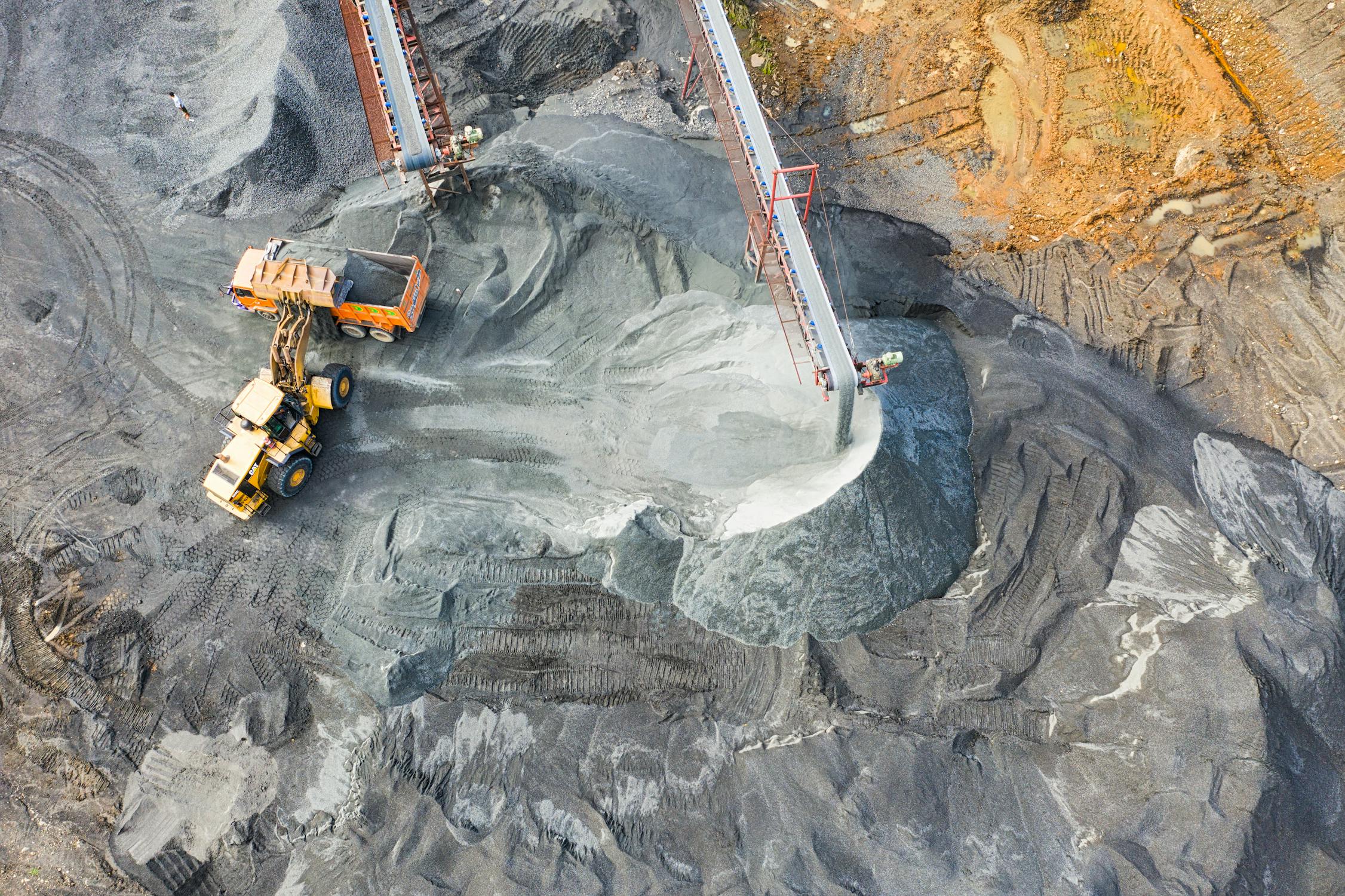Silicosis Compensation Claims
Silicosis is a serious industrial disease linked to prolonged exposure to silica dust, often encountered in various workplaces. As the awareness of silicosis grows, so does the need for individuals diagnosed with this incurable condition to understand their rights and options for pursuing compensation.
We will delve into the nature of silicosis, the types that exist, and the symptoms that sufferers may experience, all of which are crucial for making a silicosis compensation claim.

Book your FREE no obligation consultation now
Call now or leave an enquiry to request a call back that suits you.
Reviews
⭐⭐⭐⭐⭐
⭐⭐⭐⭐⭐
⭐⭐⭐⭐⭐
Your Silicosis Compensation Solicitors
Always approachable and highly regarded by thousands of satisfied clients, we will tirelessly work to achieve the best possible result for you.
What is Silicosis?
Definition and Overview
Silicosis is a chronic lung disease caused by inhaling fine particles of silica dust, leading to lung inflammation and scarring. This condition typically develops after prolonged exposure to silica, commonly found in industries such as construction, mining, and manufacturing. For many workers, the risk of developing silicosis is a serious concern, especially when employers fail to uphold their duty of care regarding health and safety. Individuals diagnosed with silicosis may be eligible for compensation, and understanding the claims process is essential for those looking to make a silicosis claim.
Symptoms of Silicosis
There are three primary types of silicosis, each varying in severity and duration of exposure to silica dust. Acute silicosis occurs after a short but intense exposure to high levels of silica dust, leading to rapid health deterioration. In contrast, accelerated silicosis develops more quickly than chronic silicosis, which is characterised by a slow progression of lung damage over many years. Understanding these types is vital for individuals when consulting with silica dust exposure solicitors, as it can impact the nature of their claim for silicosis compensation.
Types of Silicosis
The symptoms of silicosis may take years to manifest, making early detection challenging. Common indicators include persistent cough, shortness of breath, and fatigue, which often worsen over time. As the disease progresses, individuals may experience chest pain and an increased risk of lung infections. If you or someone you know is exhibiting these symptoms and has been exposed to silica dust in the workplace, it is crucial to seek medical attention and consult with a solicitor. They can assist in navigating the claims process and help you understand how to make a silicosis compensation claim effectively.
Causes and Risk Factors
Exposure to Silica Dust
Exposure to silica dust is the primary cause of silicosis. This fine particulate matter is found in various materials, including sand, stone, and concrete, and is often released into the air during construction, mining, or manufacturing activities. When workers inhale silica dust, it can lead to inflammation and scarring in the lungs, resulting in symptoms of silicosis. The degree of risk is largely determined by the concentration of dust in the air and the duration of exposure. Those diagnosed with silicosis may be eligible to make a silicosis compensation claim, especially if their employer failed to uphold their duty of care regarding health and safety protocols.
Workplace Environments and Risks
Certain workplace environments are inherently more dangerous due to the presence of silica dust. Industries such as construction, mining, and stone masonry often expose workers to high levels of silica, significantly increasing their risk of developing silicosis. Employers in these sectors have a legal obligation to implement adequate safety measures, including dust control systems and personal protective equipment. Failure to do so not only jeopardises workers’ health but also can result in legal repercussions, allowing affected individuals to pursue a claim for silicosis compensation. Understanding the specific risks associated with these environments is crucial for workers, as it can inform their decisions regarding health monitoring and potential claims for compensation.
Risk of Developing Silicosis
The risk of developing silicosis varies depending on the type of exposure experienced by workers. Those exposed to high concentrations of silica dust for extended periods are at the greatest risk, particularly in jobs that involve activities such as drilling, blasting, or grinding. Acute silicosis can develop after only a short period of intense exposure, while chronic silicosis typically manifests after years of consistent inhalation of silica particles. Workers should be aware of the symptoms of silicosis, including persistent cough and shortness of breath, to seek timely medical advice. If diagnosed with silicosis, individuals may wish to consult specialist silicosis solicitors to explore their rights and options for making a silicosis claim, ensuring they receive the compensation they deserve for their suffering and loss of quality of life.
Compensation for Silicosis
How Much Compensation Can You Expect?
The amount of compensation you can expect from a silicosis claim varies significantly based on several factors, including the severity of your condition, the extent of your exposure to silica dust, and the impact on your quality of life. Generally, compensation can range from thousands to potentially millions of pounds, particularly if the diagnosis is of chronic or accelerated silicosis.
Since silicosis is a progressive illness, we can frequently obtain damages on a temporary basis. This indicates that you will receive a payment reflecting the current impact of silicosis on your life, while retaining the option to go back to court and seek additional compensation should your condition worsen.
Types of Compensation Available
There are various types of compensation available for individuals making a silicosis claim, including:
- File a civil claim for compensation: One of our expert silicosis attorneys can assist you in navigating this procedure.
- Submit a claim for industrial disablement benefits: You are eligible for these benefits if you have developed silicosis due to silica exposure in your workplace. However, it’s crucial to note that you will not be eligible if you were self-employed at the time of the exposure.
- Request a lump sum compensation under the Workers Compensation Act 1979: This compensation claim is open to anyone diagnosed with silicosis or to a dependent of someone who has passed away from the condition.
Understanding these types of compensation is vital when preparing to make a silicosis compensation claim. Consulting with our expert silicosis team will provide deeper insights into the specific compensation avenues available for your unique situation.
Risk of Developing Silicosis
The risk of developing silicosis varies depending on the type of exposure experienced by workers. Those exposed to high concentrations of silica dust for extended periods are at the greatest risk, particularly in jobs that involve activities such as drilling, blasting, or grinding. Acute silicosis can develop after only a short period of intense exposure, while chronic silicosis typically manifests after years of consistent inhalation of silica particles. Workers should be aware of the symptoms of silicosis, including persistent cough and shortness of breath, to seek timely medical advice. If diagnosed with silicosis, individuals may wish to consult specialist silicosis solicitors to explore their rights and options for making a silicosis claim, ensuring they receive the compensation they deserve for their suffering and loss of quality of life.
Why choose Keenan Solicitors for your Silicosis Compensation Claim?
We know the step-by-step process to putting together a successful claim
Making a silicosis claim involves several steps that require careful consideration and organisational skills. First, it’s essential to gather all relevant medical records that confirm your diagnosis of silicosis and document the exposure to silica dust in your workplace. This documentation serves as crucial evidence in supporting your claim for silicosis compensation.
As expert silicosis compensation solicitors, Keenan Solicitors can guide you through the entire claims process. We will help you understand your rights, assess how much compensation you may be eligible for, and ensure that your claim is filed within the appropriate timeframe. It’s important to act promptly, as delays can hinder your opportunity to claim compensation for your suffering.
We help you understand the legal requirements for a Silicosis Compensation Claim
To successfully make a silicosis claim, certain legal requirements must be fulfilled. Firstly, you must establish that your silicosis was caused by exposure to silica dust in the workplace, demonstrating the link between your condition and your employer’s failure to uphold their duty of care. This often involves proving that your employer neglected health and safety regulations, thereby contributing to your illness.
Additionally, you must file your claim within a specific period, known as the limitation period, which varies by jurisdiction. In Northern Ireland, once you have been diagnosed with silicosis, you will typically have three years to make a claim. Ensuring that all legal requirements are adequately met is vital, as any discrepancies could jeopardise your silicosis compensation claim. If you have any specific questions, we can discuss this during your free initial consultation.
We have vast experience with industrial disease claims
Our top team of industrial disease lawyers located in Belfast will dedicate time to understand your situation and address any issues or anxieties you might have. We will assist you throughout the journey of pursuing silica dust exposure compensation, starting from your first conversation with us about your condition, to coordinating with medical professionals, and ultimately ensuring you receive the compensation you deserve.
Frequently Asked Questions
What are the different types of silicosis?
There are different types of silicosis, including:
- Acute silicosis can occur after intense exposure to large amounts of silica over a short period
- Chronic silicosis develops after long-term exposure to lower amounts of silica.
Unfortunately, silicosis is an incurable condition, and those affected may be entitled to make a silicosis illness claim against their employer, who has a duty to provide a safe working environment.
Is pneumoconiosis the same as silicosis?
Pneumoconiosis is one of a group of interstitial lung disease caused by breathing in certain kinds of dust particles that damage your lungs. The three most common types are asbestosis, silicosis, and coal miner’s lung,
Which jobs are most at risk of silicosis?
obs that are most at risk of silicosis typically involve exposure to silica dust at work, such as:
- Construction
- Demolition
- Glass manufacturing
- Mining
- Paving
- Pottery and ceramics
- Sand blasting
- Stone masonry and cutting
According to the Health and Safety Executive, employers have a duty to implement safety measures to protect their workers from silica dust at work. However, if these measures are inadequate, workers may find themselves developing this serious condition.
How long does the silicosis claim process take?
Can I make a silicosis claim on behalf of someone else?
You can seek compensation on behalf of another individual if that person is unable to do so because of their age, mental incapacity, or even if they have passed away.
Can I claim for other conditions caused by exposure to silica dust?
While silicosis is the most common condition resulting from exposure to silica dust, but it has been linked to a range of respiratory conditions, including COPD and lung cancer. You may be eligible for compensation if you develop any other type of respiratory condition after exposure to silica dust. During your initial consultation with us let us know and we can advise whether you can avail of further compensation.
Can I still claim silicosis compensation if my employer has gone out of business?
Can I make a no win, no fee claim for silicosis?
It is not possible to make a no win, no fee claim for silicosis in Northern Ireland, unlike England and Wales. Learn more in our article about:







